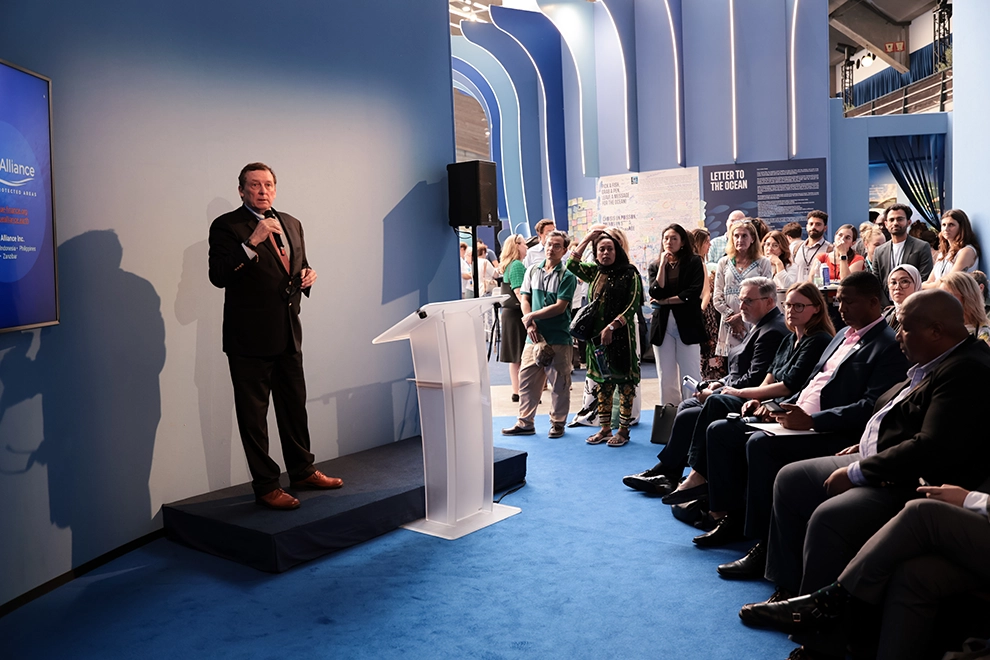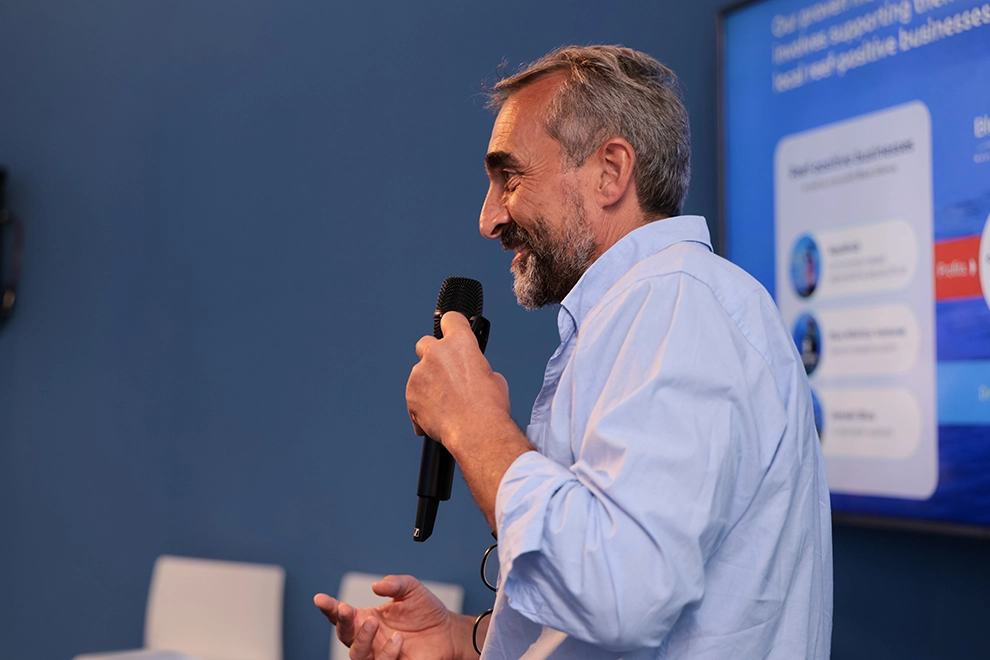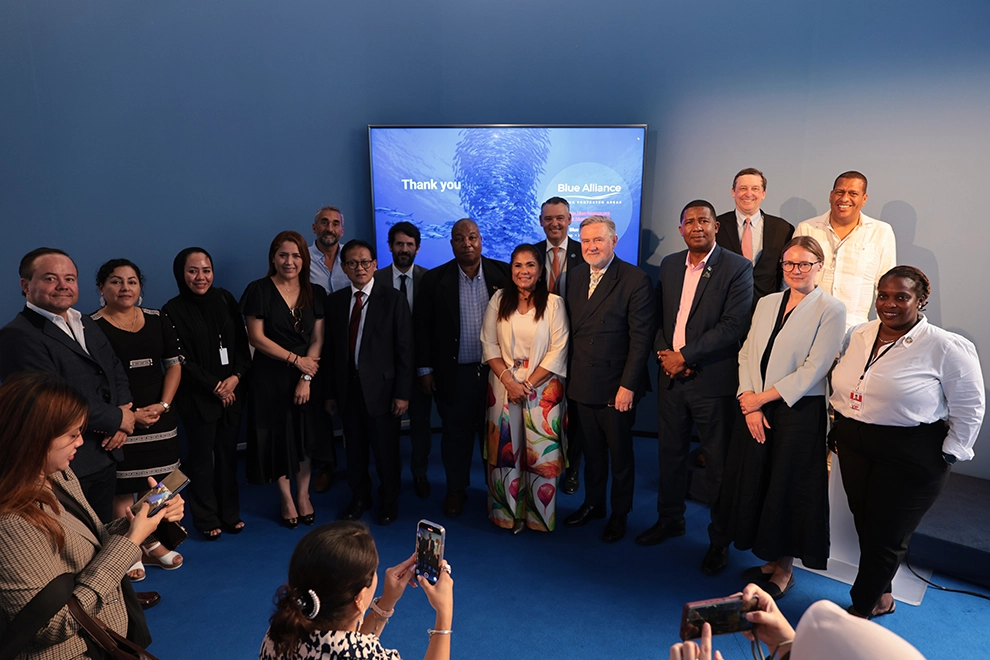On June 9, 2025, the ICCF Group hosted an event at the International Coral Reef Initiative #ForCoral Pavilion in the Green Zone of “La Baleine” in Nice, France. Under the objectives of the GEF-funded, UNEP-implemented projects Enhancing Political Will for Sustainable Protected Areas Financing, Facilitating Dialogue and Strengthening Transboundary Cooperation with Legislators to Improve Marine Governance, and Advancing Conservation in the Eastern Caribbean, this interparliamentary exchange provided an opportunity for thirteen legislators to discuss the critical role they play in Marine Protected Area (MPA) financing and dialogue with multisectoral stakeholders like intergovernmental organizations, development banks, philanthropic initiatives, and marine agencies.

Dr. Jaime Cavelier, ICCF Group Vice President of Strategic Partnerships, opened the session with the need and barriers related to MPA financing.
The current global Protected Area (PA) network receives only approximately one-third of the funding needed for effective management, with legislative and financial gaps being well known around the globe. A 2020 study of the funding gap to achieve SDG 14: Life Below Water estimated a gap of US$ 149 billion per year. Without adequate financing, the effectiveness and long-term success of MPAs is directly undermined: MPAs are unable to employ the workforce and resources needed, implement management and enforcement activities, or engage effectively with relevant stakeholders. Parliamentarians sit on the frontlines, playing a pivotal role in the expansion and improvement of effective management of MPAs through legislation, oversight, and advocacy. He then introduced Dr. Nicolas Pascal, Executive Director of Blue Alliance Marine Protected Areas, to provide the keynote presentation to the members of Parliament in attendance.

Keynote speaker Dr. Nicolas Pascal, Executive Director of Blue Alliance Marine Protected Areas.
Blue Alliance is a non-profit organization working with governments and partners to build and manage MPAs that regenerate coral reef ecosystems and improve the lives of local communities. Currently working in the Philippines, Indonesia, Zanzibar, and Belize, they utilize four fundamental and interrelated fields of operation: Science and Conservation, Community Development, Compliance, and Sustainable Revenues. To bridge the marine financing gap, Blue Alliance owns and runs bankable reef-positive businesses (RPBs) around the MPAs (e.g., Aquahub, Blue Wild Eco Ventures, Samaki Bluu) to alleviate poverty and generate long-term income for MPAs. They established a blended finance vehicle with commitments from major donors and impact investors to support the portfolio of RPBs and MPAs until they achieve self-sufficiency. The initial blended investments enable local co-management entities to implement the RPBs whose revenues can cover the necessary MPA annual operational budgets.
Following the presentation, Dr. Cavelier moderated the discussion allowing Parliamentarians to share successes and challenges in their countries related to the financial sustainability of MPAs, and how Blue Alliance’s model might apply. Representatives from Colombia, Grenada, Indonesia, Mexico, Peru, St. Kitts and Nevis, St. Lucia, and the United Kingdom also outlined what assistance or resources they might need from experts, MPA agencies, non-governmental organizations, or foundations in the legislative process. Partners Comisión Colombiana del Océano (CCO), Development Bank of Latin America and the Caribbean (CAF), Organisation of Eastern Caribbean States (OECS) Commission, and Bloomberg Philanthropies Ocean Initiative had the opportunity to provide interventions and remark on how they can support Parliamentarians in securing the sustainable financing of MPAs.

 Regional Headquarters
Regional Headquarters